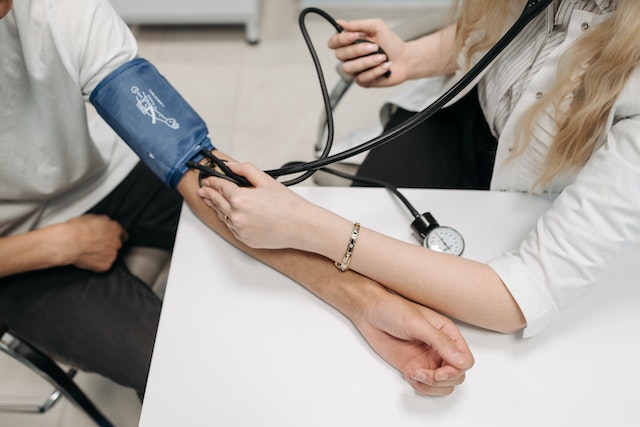One of the main culprits is staring at computer screens for extended periods of time. When we stare at screens, we tend to blink less frequently, which can cause our eyes to become dry and irritated. This is known as computer vision syndrome or digital eye strain. The American Optometric Association (AOA) reports that as many as 90% of people who use a computer for work experience symptoms of computer vision syndrome.
But it’s not just screens that are to blame. The air inside office buildings can also contribute to dry eye symptoms. Heating and air conditioning systems can dry out the air, making it more difficult for our eyes to stay moist. Additionally, many office buildings are located in urban areas, where air pollution can exacerbate dry eye symptoms.
Another factor is the lighting in your office. Bright or harsh lighting can cause eye strain and dryness. Fluorescent lighting, which is commonly used in office buildings, can be particularly problematic as it emits blue light, which can damage our eyes and disrupt our sleep patterns.
So, what can you do to combat dry eye symptoms if you work in an office?
Firstly, take regular breaks from your computer screen. The AOA recommends following the 20-20-20 rule: every 20 minutes, take a 20-second break and look at something 20 feet away. This will give your eyes a chance to rest and reset.
Secondly, try to blink more often. Blinking helps to spread tears over the surface of the eye, keeping it moist. If you find that you’re not blinking enough, make a conscious effort to blink more often.
Thirdly, consider using a humidifier in your office. Adding moisture to the air can help to reduce dryness in the eyes. If a humidifier isn’t an option, try using eye drops or artificial tears to keep your eyes moist.
Finally, consider the lighting in your office. If the lighting is too bright or harsh, try to adjust it or use a desk lamp with a softer light. Additionally, consider wearing computer glasses or blue light-blocking glasses, which can help to reduce eye strain and dryness.
In conclusion, office jobs can be a contributing factor to dry eye symptoms, but there are steps you can take to alleviate them. By taking regular breaks from your computer screen, blinking more often, using a humidifier, and adjusting the lighting in your office, you can keep your eyes moist and healthy. If your symptoms persist, it’s important to see a doctor who can recommend medical treatments, such as prescription eye drops or procedures to unblock oil glands.










